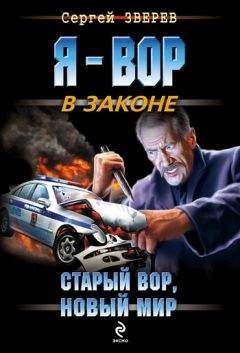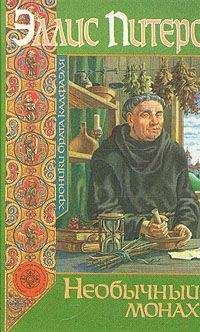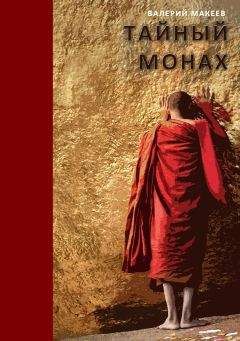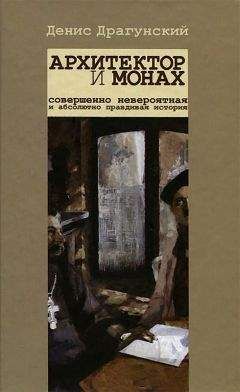Энтони Хоуп - Английский язык с Энтони Хоупом. Узник Зенды / Anthony Hope. The Prisoner Of Zenda
King Rudolf the Fifth was in his good city of Strelsau (король Рудольф Пятый был в своем дорогом городе Стрелсо; good – хороший; милый, любезный)! And they shouted outside (отовсюду раздавались крики: «и они кричали снаружи») —
“God save the King (Боже, храни короля)!”
Old Sapt’s mouth wrinkled into a smile (рот старика Сэпта сморщился в улыбке).
“God save ’em both!” he whispered (Боже, храни их обоих! прошептал он). “Courage, lad!” and I felt his hand press my knee (смелее, парень! – и я почувствовал, как его рука сдавила мое колено).
The train stopped. Fritz and Sapt leapt out, uncovered, and held the door for me. I choked down a lump that rose in my throat, settled my helmet firmly on my head, and (I’m not ashamed to say it) breathed a short prayer to God. Then I stepped on the platform of the station at Strelsau.
A moment later, all was bustle and confusion: men hurrying up, hats in hand, and hurrying off again; men conducting me to the buffet; men mounting and riding in hot haste to the quarters of the troops, to the Cathedral, to the residence of Duke Michael. Even as I swallowed the last drop of my cup of coffee, the bells throughout all the city broke out into a joyful peal, and the sound of a military band and of men cheering smote upon my ear.
King Rudolf the Fifth was in his good city of Strelsau! And they shouted outside —
“God save the King!”
Old Sapt’s mouth wrinkled into a smile.
“God save ’em both!” he whispered. “Courage, lad!” and I felt his hand press my knee.
Chapter 5
The Adventures of an Understudy
(Приключения дублера)
With Fritz von Tarlenheim and Colonel Sapt close behind me (с Фрицем фон Тарленхаймом и полковником Сэптом, неотступно следующими за мной; close – близко; behind – сзади, позади), I stepped out of the buffet on to the platform (я вышел из вагона-ресторана на перрон; to step out – вышагивать; выйти /за пределы/; buffet – буфет; вагон-ресторан). The last thing I did was to feel (последнее, что я сделал, это проверил; to feel – трогать, ощупывать) if my revolver were handy and my sword loose in the scabbard (под рукой ли находится мой револьвер и свободно ли /ходит/ в ножнах меч). A gay group of officers and high dignitaries stood awaiting me (радостная группа офицеров и высоких сановников стояла, ожидая меня), at their head a tall old man, covered with medals, and of military bearing (во главе с высоким пожилым мужчиной, увешанным: «покрытым» медалями и /отличавшимся/ военной выправкой; bearing – ношение; осанка, манера держать себя; to bear oneself – носить; держать, вести себя). He wore the yellow and red ribbon of the Red Rose of Ruritania (он носил желтую с красным ленту руританского /ордена/ Красной Розы) – which, by the way, decorated my unworthy breast also (которая, кстати, украшала также и мою недостойную грудь).
“Marshal Strakencz,” whispered Sapt, and I knew (маршал Штракенц, – прошептал Сэпт, и я понял; to know – знать; осознавать, понимать) that I was in the presence of the most famous veteran of the Ruritanian army (что нахожусь в присутствии самого известного ветерана руританской армии).
Just behind the Marshal stood a short spare man (чуть позади маршала стоял низенький тощий человечек; short – короткий; низкий, невысокий; spare – скудный, скромный; худой, тощий), in flowing robes of black and crimson (в ниспадающем одеянии черного и малинового /цветов/; flowing – текучий, текущий; ниспадающий; robes – мантия, одежды).
“The Chancellor of the Kingdom,” whispered Sapt (канцлер королевства, – прошептал Сэпт).
With Fritz von Tarlenheim and Colonel Sapt close behind me, I stepped out of the buffet on to the platform. The last thing I did was to feel if my revolver were handy and my sword loose in the scabbard. A gay group of officers and high dignitaries stood awaiting me, at their head a tall old man, covered with medals, and of military bearing. He wore the yellow and red ribbon of the Red Rose of Ruritania – which, by the way, decorated my unworthy breast also.
“Marshal Strakencz,” whispered Sapt, and I knew that I was in the presence of the most famous veteran of the Ruritanian army.
Just behind the Marshal stood a short spare man, in flowing robes of black and crimson.
“The Chancellor of the Kingdom,” whispered Sapt.
The Marshal greeted me in a few loyal words (маршал приветствовал меня несколькими преданными словами = уверениями в преданности), and proceeded to deliver an apology from the Duke of Strelsau (и продолжил /тем, что/ передал извинения от герцога Стрелсо; to proceed – продолжать /говорить и т. п./; переходить, приступать /к чему-л./). The duke, it seemed, had been afflicted with a sudden indisposition (герцог, по-видимому, почувствовал внезапное недомогание; to afflict – огорчать, беспокоить; поражать /о болезни/; indisposition – нерасположение; недомогание) which made it impossible for him to come to the station (которое сделало невозможным = что помешало ему прибыть на вокзал), but he craved leave to await his Majesty at the Cathedral (но он просил позволения подождать его величество в соборе; to crave – страстно желать, жаждать; просить, умолять). I expressed my concern, accepted the Marshal’s excuses very suavely (я выразил свое беспокойство /по этому поводу/, принял извинения маршала весьма учтиво; concern – отношение, касательство; беспокойство, тревога), and received the compliments of a large number of distinguished personages (и выслушал: «получил» любезности от множества высокопоставленных персон; large number – большое число; distinguished – известный, выдающийся; высокопоставленный, знатный). No one betrayed the least suspicion (ни один не выказал и малейшего подозрения; to betray – предавать, изменять; выдавать), and I felt my nerve returning (и я почувствовал, что хладнокровие вернулось ко мне; nerve – нерв; присутствие духа, мужество) and the agitated beating of my heart subsiding (и взволнованное биение сердца утихло). But Fritz was still pale, and his hand shook like a leaf (но Фриц был все еще бледен, и рука его дрожала, как /осиновый/ лист; to shake) as he extended it to the Marshal (когда он протянул ее маршалу).
Presently we formed procession and took our way to the door of the station (минуту спустя мы образовали процессию и направились к дверям вокзала). Here I mounted my horse (там я сел на свою лошадь), the Marshal holding my stirrup (маршал придерживал мне стремя).
The Marshal greeted me in a few loyal words, and proceeded to deliver an apology from the Duke of Strelsau. The duke, it seemed, had been afflicted with a sudden indisposition which made it impossible for him to come to the station, but he craved leave to await his Majesty at the Cathedral. I expressed my concern, accepted the Marshal’s excuses very suavely, and received the compliments of a large number of distinguished personages. No one betrayed the least suspicion, and I felt my nerve returning and the agitated beating of my heart subsiding. But Fritz was still pale, and his hand shook like a leaf as he extended it to the Marshal.
Presently we formed procession and took our way to the door of the station. Here I mounted my horse, the Marshal holding my stirrup.
The civil dignitaries went off to their carriages (гражданские сановники разошлись по своим каретам), and I started to ride through the streets with the Marshal on my right (и я поскакал по улицам; маршал /ехал/ справа от меня) and Sapt (who, as my chief aide-de-camp, was entitled to the place) on my left (а Сэпт (который в качестве моего главного адъютанта имел право на это место) – слева). The city of Strelsau is partly old and partly new (/здания в/ центре Стрелсо частью старинные, частью новые; city – город; деловой центр /особ. в Лондоне/). Spacious modern boulevards and residential quarters surround and embrace (широкие современные бульвары и жилые кварталы окружают; spacious – просторный; широкий; space – пространство; quarter – четверть; квартал /города/; to embrace – обнимать; окружать /устар., поэт./) the narrow, tortuous, and picturesque streets of the original town (узкие, извилистые и живописные улочки старого города; original – первоначальный, исходный; origin – источник, начало; происхождение). In the outer circles the upper classes live (у границ /старого города/: «во внешних округах» живут /представители/ высших классов; circle – круг; округ); in the inner the shops are situated (во внутренних = ближе к центру – расположены магазины); and, behind their prosperous fronts, lie hidden populous but wretched lanes and alleys (а позади их пышных фасадов находятся скрытые /от глаз,/ густонаселенные, но убогие улочки и переулки; prosperous – процветающий; богатый; front – перед; фасад; to lie – лежать; находиться, быть расположенным; wretched – несчастный, жалкий; нищенский), filled with a poverty-stricken, turbulent, and (in large measure) criminal class (заполненные нищим, неспокойным: «бурным» и (в значительной степени = преимущественно) криминальным классом; poverty-stricken – бедный, бедствующий; poverty – бедность, нищета; – stricken – в сложных словах означает: охваченный, пораженный /чем-л./; to strike – ударять, бить; поражать). These social and local divisions corresponded, as I knew from Sapt’s information (это социальное и территориальное деление соответствовало, как я знал со слов Сэпта; local – местный; information – информация, сведения), to another division more important to me (другому делению, более важному для меня). The New Town was for the King (Новый город был за короля); but to the Old Town Michael of Strelsau was a hope, a hero, and a darling (а для Старого города Михаэль из Стрелсо был надеждой, героем и любимцем; darling – дорогой, милый /преим. в обращении/; любимец, баловень).
The civil dignitaries went off to their carriages, and I started to ride through the streets with the Marshal on my right and Sapt (who, as my chief aide-de-camp, was entitled to the place) on my left. The city of Strelsau is partly old and partly new. Spacious modern boulevards and residential quarters surround and embrace the narrow, tortuous, and picturesque streets of the original town. In the outer circles the upper classes live; in the inner the shops are situated; and, behind their prosperous fronts, lie hidden populous but wretched lanes and alleys, filled with a poverty-stricken, turbulent, and (in large measure) criminal class. These social and local divisions corresponded, as I knew from Sapt’s information, to another division more important to me. The New Town was for the King; but to the Old Town Michael of Strelsau was a hope, a hero, and a darling.
The scene was very brilliant as we passed along the Grand Boulevard (зрелище было очень ярким = вокруг все сверкало, когда мы проезжали по Гранд-Бульвар; scene – место действия; вид, пейзаж; brilliant – блестящий, сверкающий; яркий) and on to the great square where the Royal Palace stood (и по огромной площади, где стоял королевский дворец). Here I was in the midst of my devoted adherents (здесь я был среди своих преданных сторонников). Every house was hung with red and bedecked with flags and mottoes (каждый дом был убран в багряный цвет: «был увешан красным» и украшен флагами и лозунгами; motto – девиз; лозунг). The streets were lined with raised seats on each side (/вдоль/ улиц с каждой стороны стояли трибуны; to line – проводить линии; выстраивать в линию, устанавливать в ряд; to raise – поднимать; seat – место /для сидения/; скамья), and I passed along, bowing this way and that (и я, проезжая вдоль /них/, кланялся направо и налево; this way and that – туда и сюда), under a shower of cheers, blessings (под градом приветственных возгласов /и/ благословений; shower – ливень; град /пуль, вопросов и т. п./), and waving handkerchiefs (/многие/ махали платками). The balconies were full of gaily dressed ladies (на балконах стояли пестро разодетые дамы: «балконы были полны ярко одетых дам»; gaily – весело, радостно; ярко), who clapped their hands and curtsied and threw their brightest glances at me (которые хлопали в ладоши, делали реверансы и бросали на меня свои самые радостные взгляды; bright – яркий; веселый, радостный). A torrent of red roses fell on me (поток красных роз падал на меня = несметное число алых роз летело в мою сторону; to fall); one bloom lodged in my horse’s mane (один цветок застрял в гриве моей лошади; bloom – цвет, цветение; цветок; to lodge – разместить, приютить; засесть, застрять), and I took it and stuck it in my coat (я взял его и воткнул в /петлицу/ своего кителя; to stick). The Marshal smiled grimly (маршал сурово улыбнулся; grim – жестокий, беспощадный; суровый, мрачный). I had stolen some glances at his face (я несколько раз украдкой поглядывал на его лицо; to steal – воровать, красть; сделать /что-л./ незаметно, украдкой), but he was too impassive to show me (но он был слишком бесстрастен, чтобы показать мне) whether his sympathies were with me or not (на моей стороне: «со мной» его симпатии или нет).




